Eliza Abedi recalled getting home from work on Jan. 20, and turning on the television. Millions of women were marching around the world. History was being made, and she wanted to witness it.
“It was amazing, beautiful and something that doesn’t doesn’t happen everyday,” Abedi said.
Women’s marches took place around the world that Saturday, ranging from New Zealand to Alaska and even Antarctica. An estimated 15,000 to 20,000 Vermonters rallied in Montpelier outside the statehouse, as U.S. Senator Bernie Sanders made a surprise appearance.
In wake of the event, Abedi wanted to keep this activism moving forward. She planned a silent protest, where females students would wear black and pink on Wednesday to extend the message of unity and human rights from the marches. Driven by not being able to participate in the protest due to work, Abedi worked with students Suzan Hoffman and Hawa Adam to plan the demonstration.
Burlington High School is known as a politically active community. Students frequently organize silent protests by wearing a particular color, or putting up signs around school. This school year alone, students have worn black to show solidarity with Black Lives Matter, put up signs to protest the school dress code and made a banner for the presidential election.
The women’s rights demonstration was set to last an entire week.
Abedi spread the word of her idea to a friend at South Burlington High School, who offered to put her in touch with Ryan Mercer, a journalist at the Burlington Free Press. Abedi was thrilled when he agreed to come take a photo.
“I said it was perfect, and I really didn’t think there would be any backlash because it is a student run thing. We’re just trying to get our voices out there,” Abedi said.
Ryan Mercer, the photographer that Eliza was in contact with told the BHS Register that the Burlington Free Press had not had trouble in the past covering school events or protests. “I recall one of the last ones was related to a student protest over the school budget when students placed “For Sale” signs at the entrance to BHS,” Ryan Mercer said.
The Free Press had told her that they would contact the school administration, but when Abedi asked BHS Principal Tracy Racicot to make an announcement calling all participants to the lobby for a photo, she was told that the press would not be allowed on school grounds during the school day.
“She shut me down,” Abedi said.
Racicot also told Eliza about her concern with having the school mingle with politics, expressing that she wanted the high school to maintain a neutral viewpoint. She asked Abedi how she would react if a student who supports President Donald Trump organized a silent protest and had the press cover it.
“I was like, that’s their freedom. They can address what they feel and say what they feel. That is none of our business. We would not do anything about that,” Abedi told the Register.
Abedi stressed how the show of solidarity was not politically charged.
“I said it had nothing to do about politics. We are not anti-Trump. We just care about women’s rights.”
Many students are unhappy with the actions taken by administration, including Katherine Turnbull, a BHS junior
“[Administration was] trying to silence student voice and student activism when it hasn’t been silenced in the past and it has always been encouraged,” she said.
Racicot affirmed her belief that the school is politically neutral saying “I do not believe that the school has nay political stance.”
However in a December interview, she said that she would allow students to hang Donald Trump campaign signage in the front lobby. Several banners currently hang in the front lobby, including one of the Hillary Clinton campaign slogan “Stronger Together.”
Photos of students creating the banners were also published on Nov. 9 in the school-run BHS Connections newsletter.
“Inside and outside of school are very different conversations,” Racicot said. “Protests within school as demonstrated by the supreme court case are not to be destructive to the educational process.”
In 1968, the Supreme Court ruled in Tinker v. Des Moines that students do not “shed their constitutional rights to freedom of speech or expression at the schoolhouse gate.” The court determined that school administration cannot stop free speech unless it is disruptive to the educational process, leaving a large amount of discretion to the principal.
“Political discourse is critical to the success in democracy so it certainly has a time and place in school,” Racicot said. She believes that a visit by the press while classes are in session would be disruptive.





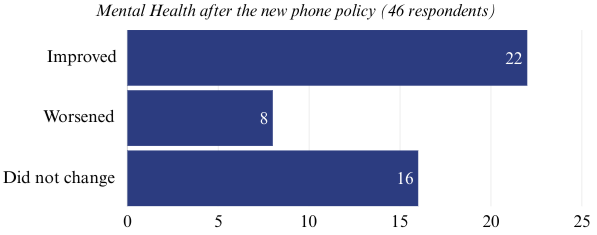
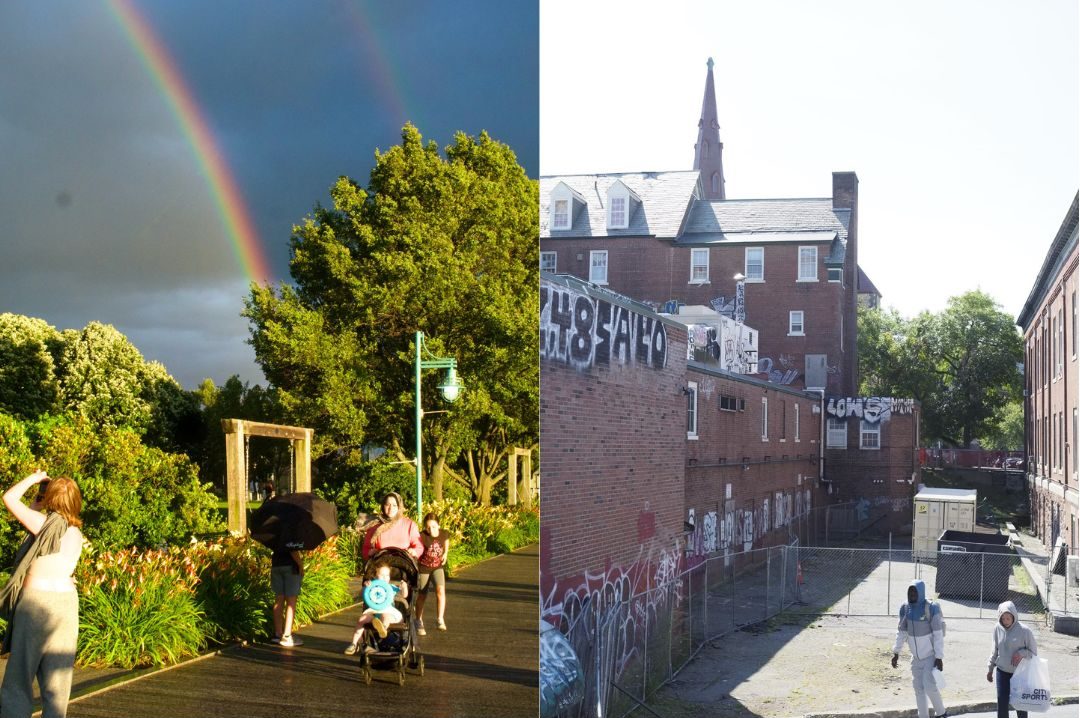

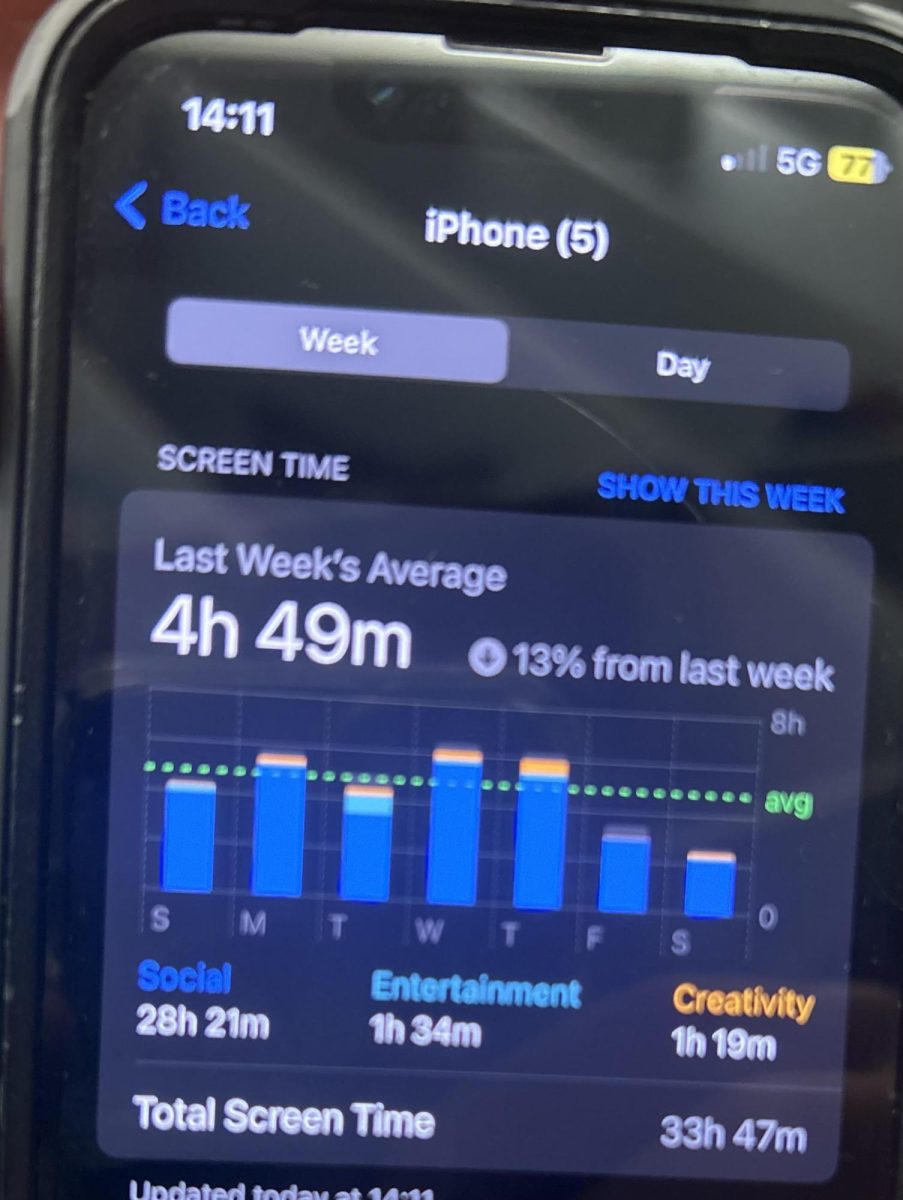


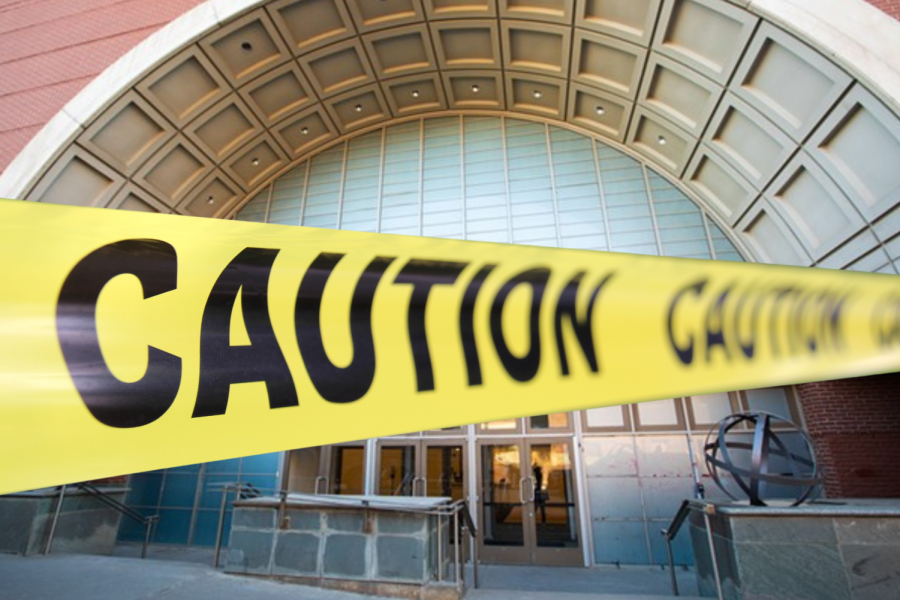
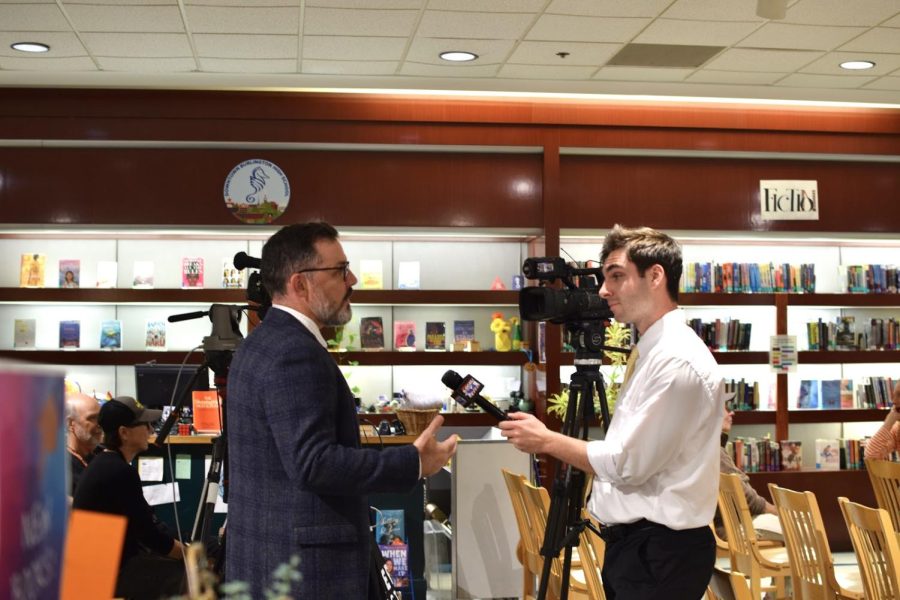

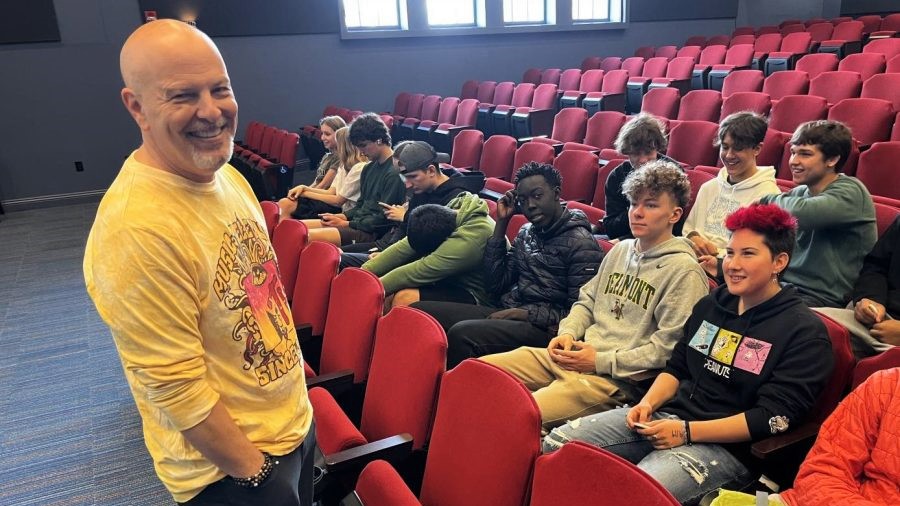



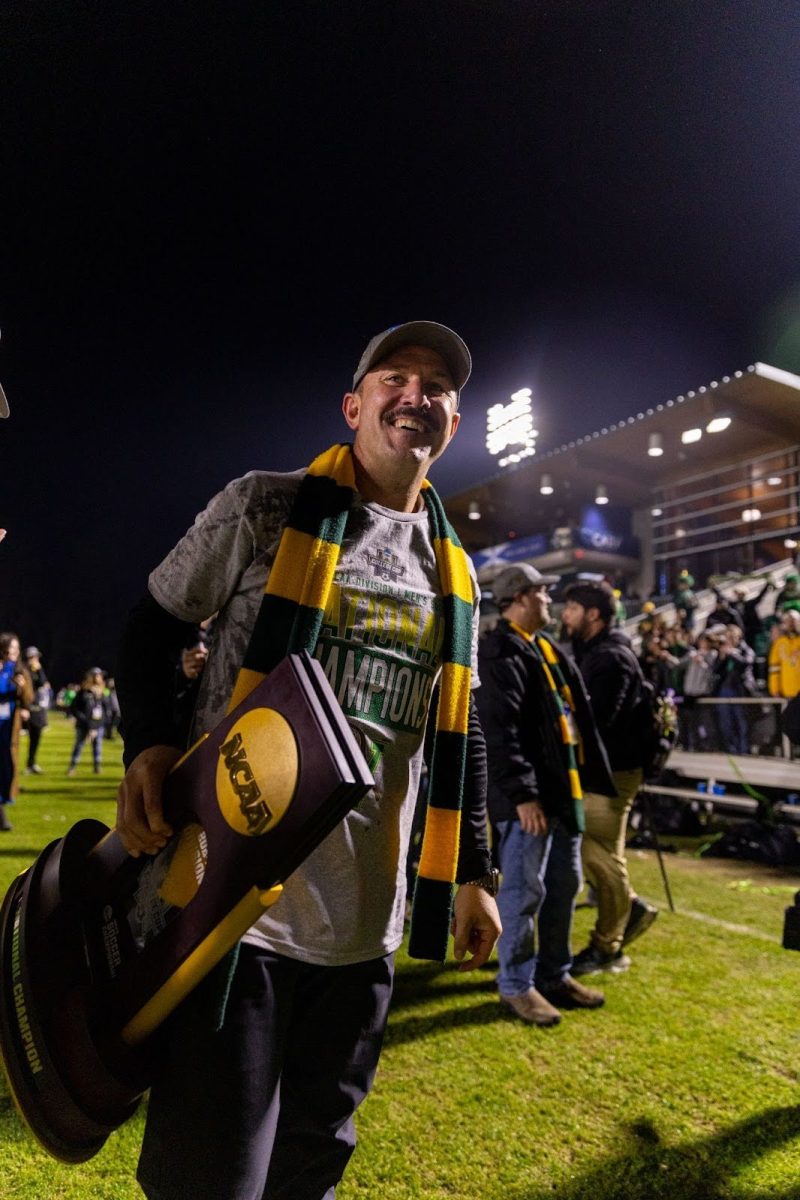

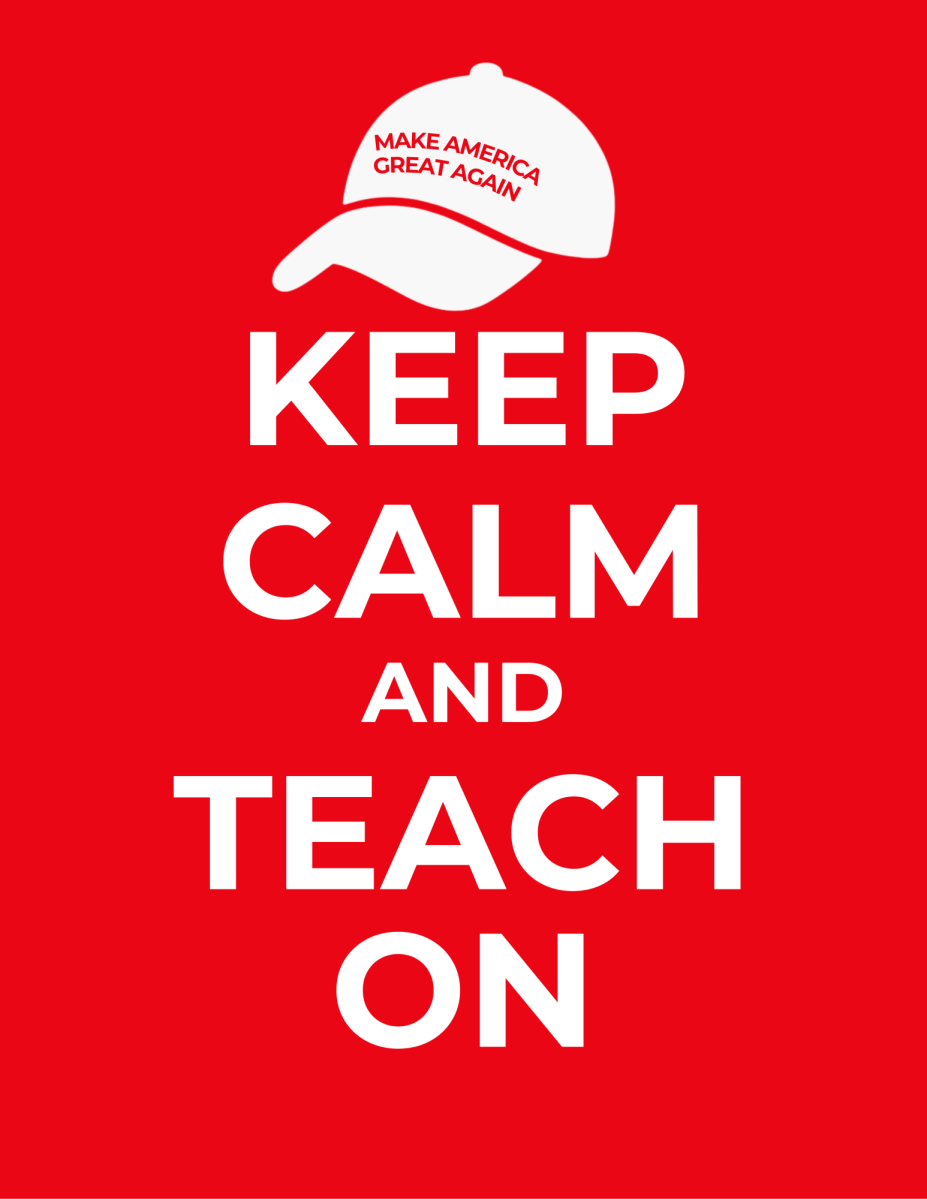

Kolby LaMarche • Feb 3, 2017 at 6:18 pm
I applaud the actions of Ms.Racicot pertaining to media outreach and I also applaud the fair interpretation of the famous Supreme Court case.